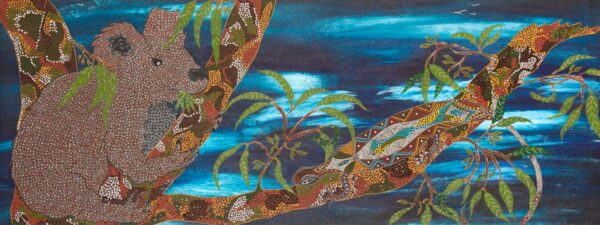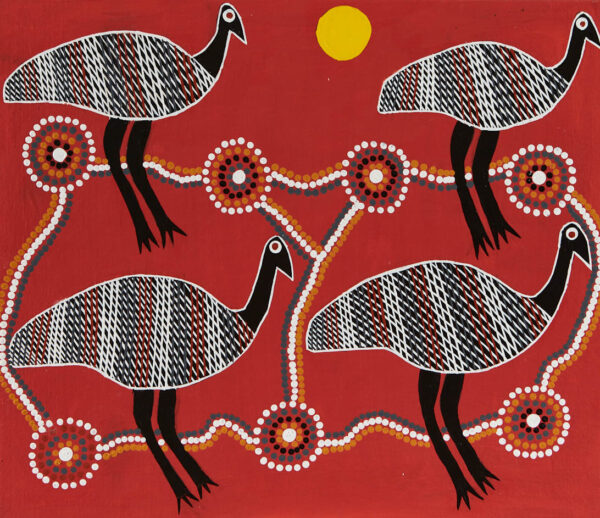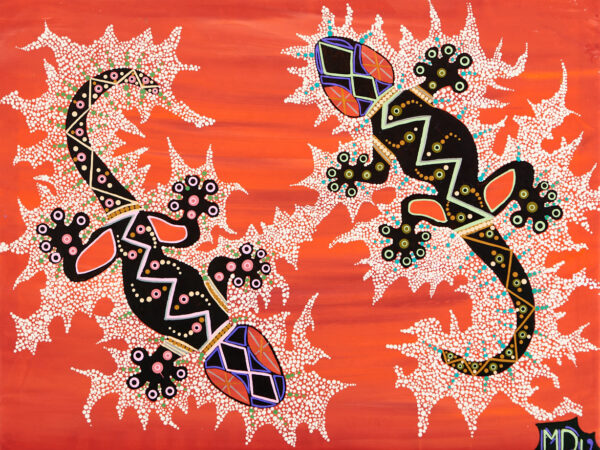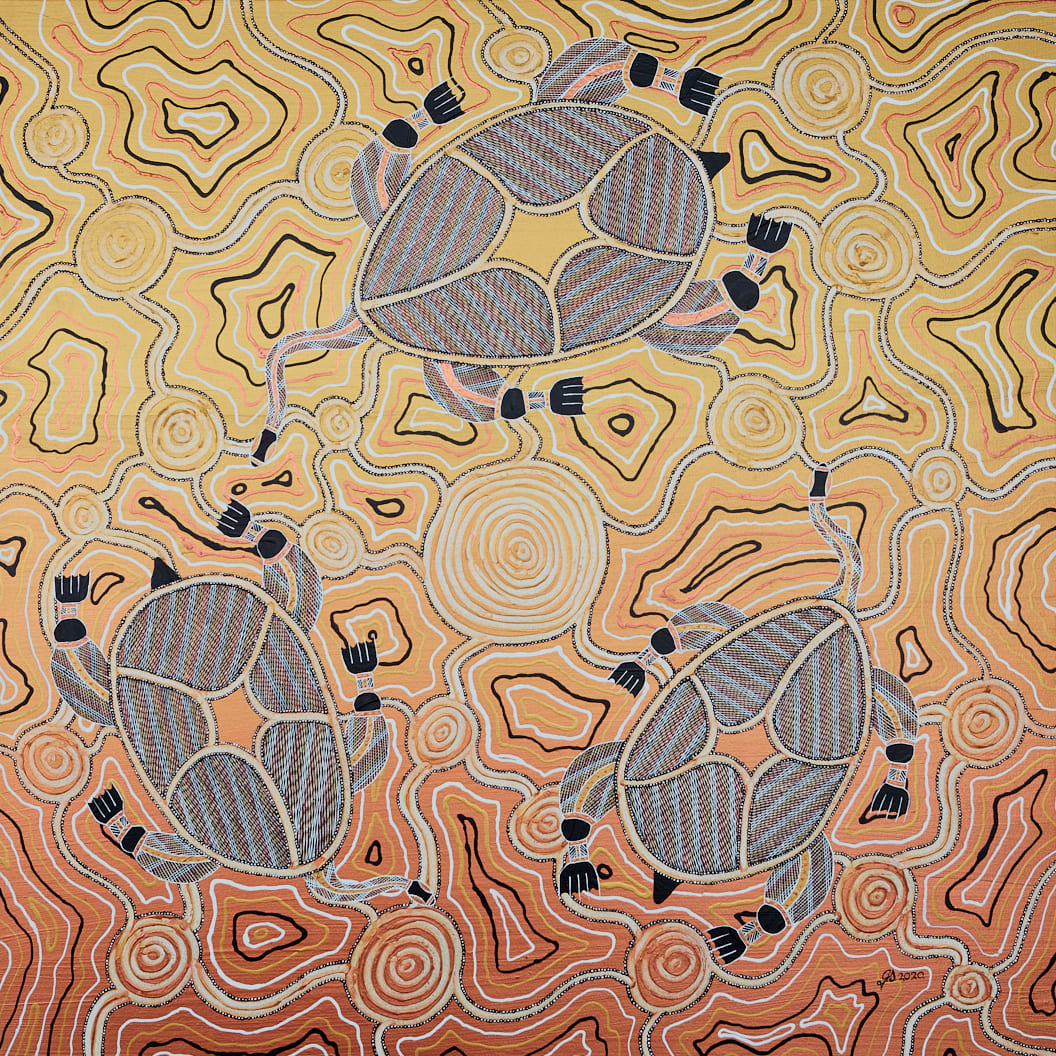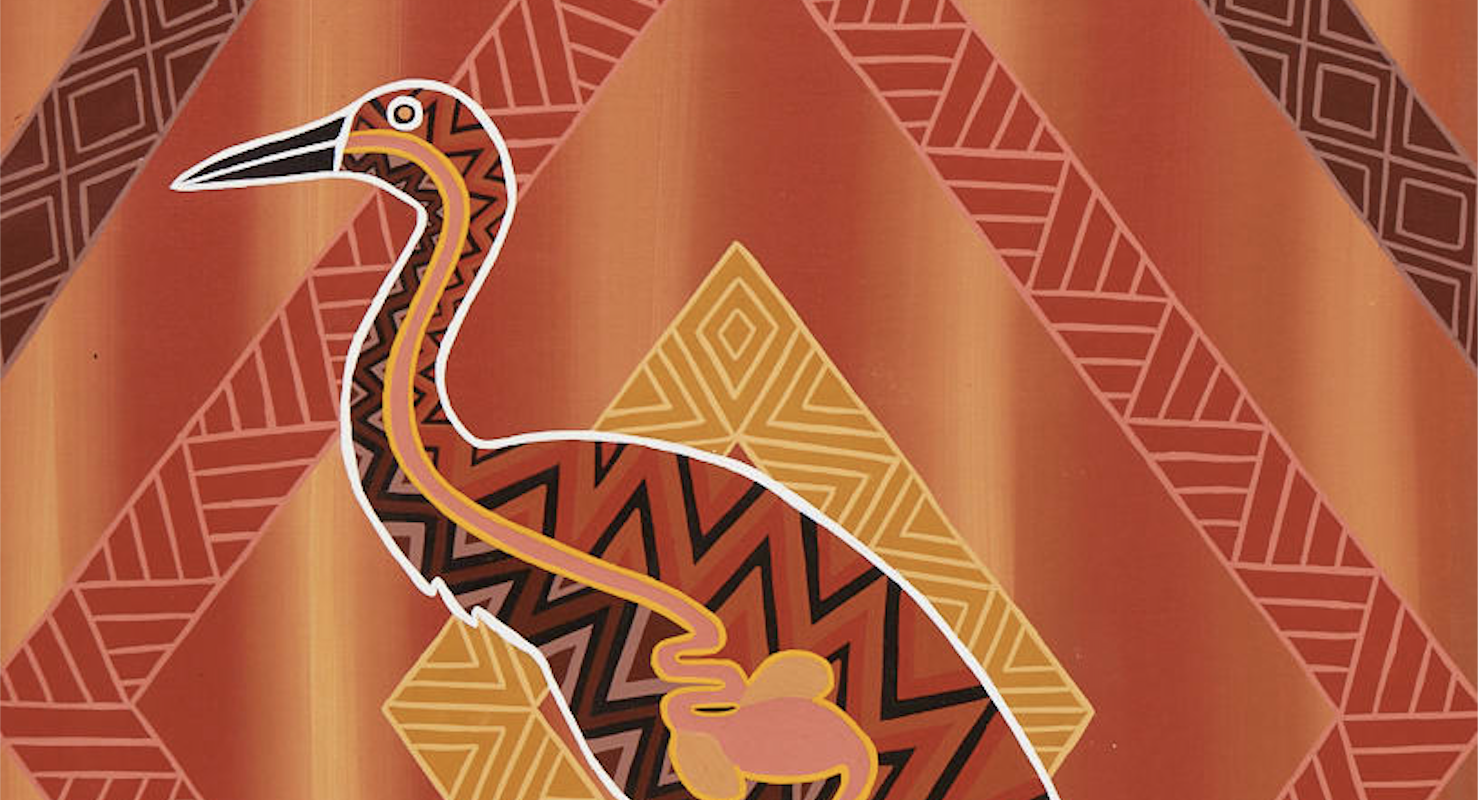
Caring for Country and for collective wellbeing is something our First Nations have done for over 65,000 years. Building on that strength, and informed by community and artists, LiverWELL have launched a customised Guide that offers multiple tips and current links to support healthy living.
The Guide was designed by graphic designer and Torch Indigenous Arts Officer Sean Miller (Kamilaroi), and features a number of exciting Indigenous art pieces from The Torch artists to add to its appeal.
Torch artists Keith (Gunaikurnai/Monero), BBPaints (Ngarabal), Darren (Yorta Yorta), Dargs (Darug) and Garry Scott all feature in the Guide with Keith’s ‘Shifty Crane’ on the front cover.
The health of Indigenous people is paramount in maintaining strong connections to Country and in maintaining strong communities. LiverWELL are proud to announce the launch of a Healthy Living Guide for the Aboriginal Community. The Guide promotes steps that Aboriginal people can take to look after the health of their liver and promote healthy activity, food and drink in their family and community. It is available for viewing and downloading at liverwell.org.au/aboriginal-healthy-living-guide/
There are higher rates of liver disease in Aboriginal communities and it is getting worse. Aboriginal and Torres Strait Islander people are ten times more likely to be diagnosed with viral hepatitis than non-Aboriginal populations. Viral hepatitis is the major cause of liver cancer in Australia, and liver cancer is the fastest growing cause of cancer death in Australia.
Minister for Aboriginal Affairs Gabrielle Williams said the new guide would be an important tool for Aboriginal communities to support improved health and wellbeing.
“A dedicated guide that speaks directly to Aboriginal Victorians about staying healthy and well is a fantastic initiative – and I thank all the groups and individuals who have played a part in creating it,” she said.
“Given the increased prevalence of viral hepatitis in Indigenous communities, it’s vital we provide all the necessary information and support they need so they can better manage any health risks.”
